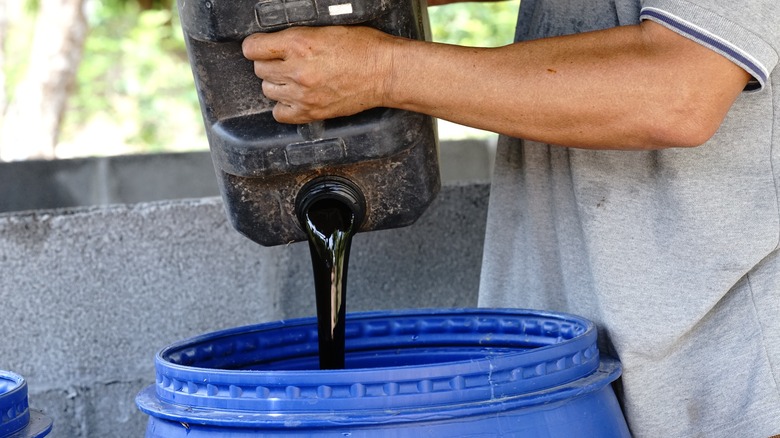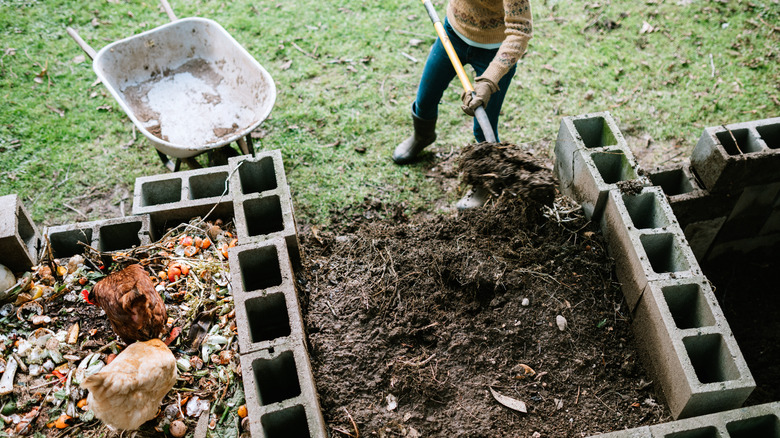Should You Start Adding Molasses To Your Compost Pile? Here's What We Know
Molasses, the indispensable ingredient in gingerbread and so many other baked goods, also has some uses around the home and garden. Not only does the sweet ingredient have a reputation for repelling possums, but it can even prove beneficial for your compost in some situations. Arguably the best use of molasses in compost is to serve as an activator when you're starting a new pile. It's also used in anaerobic bokashi composting, which, unlike other types of compost, requires fermentation.
While molasses is sometimes added to compost tea, a study by the U.S. Department of Agriculture found that its presence in compost teas can be dangerous, since the sugary substance encourages salmonella and E.coli growth. In compost piles, these pathogens are not a concern if the compost is given time to heat up to 140 degrees Fahrenheit and stay at this temperature for a few weeks. However, when molasses or other simple sugars are added to the tea, the harmful bacteria can proliferate and potentially cause illnesses. So, while you can safely add molasses to a compost bin, it's best to avoid using the ingredient when making compost tea for your garden.
Using molasses as an activator or addition in compost bins
Hot compost bins and piles use heat to speed up the natural decomposition process, and one of the best ways to increase the heat in the pile is by encouraging different bacteria to proliferate. This process leads to protozoa and fungi growth as well, all of which help to break down the organic material into compost. Adding molasses when starting a new compost pile can help start this bacterial chain reaction and accelerate decomposition.
Apart from using molasses to get your compost off to a fast start and encouraging bacterial growth, you can also add old, leftover molasses into the bin once the compost is already activated. In this situation, old molasses can be considered a "green" when you add it to your compost. Just keep in mind that molasses, like other food scraps, should be buried to discourage animals from visiting your bin and making a mess.
Despite their role as an activator, adding molasses isn't strictly necessary. So, if you don't have the ingredient on hand, just a mix some brown material like dry leaves, green material like grass clippings, and a bit of soil to add some local microbes. With these vital ingredients, most compost piles will do very well even without molasses there to hasten the breakdown of organic matter.

